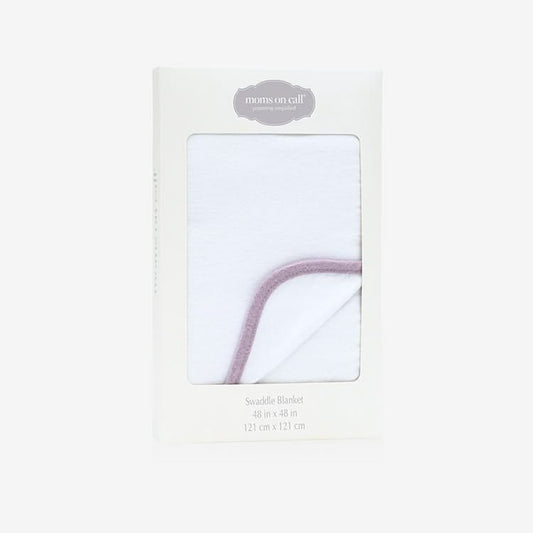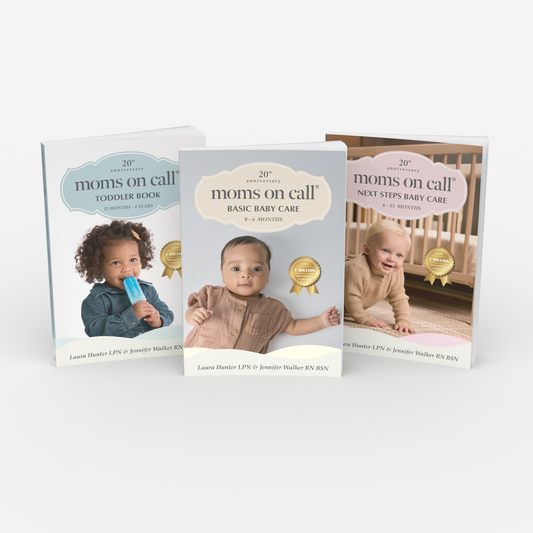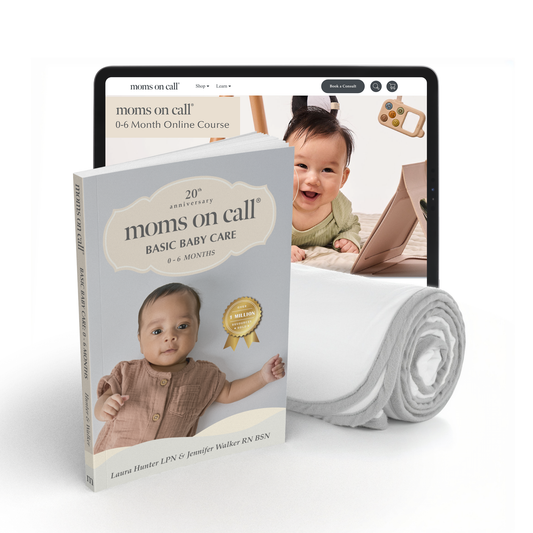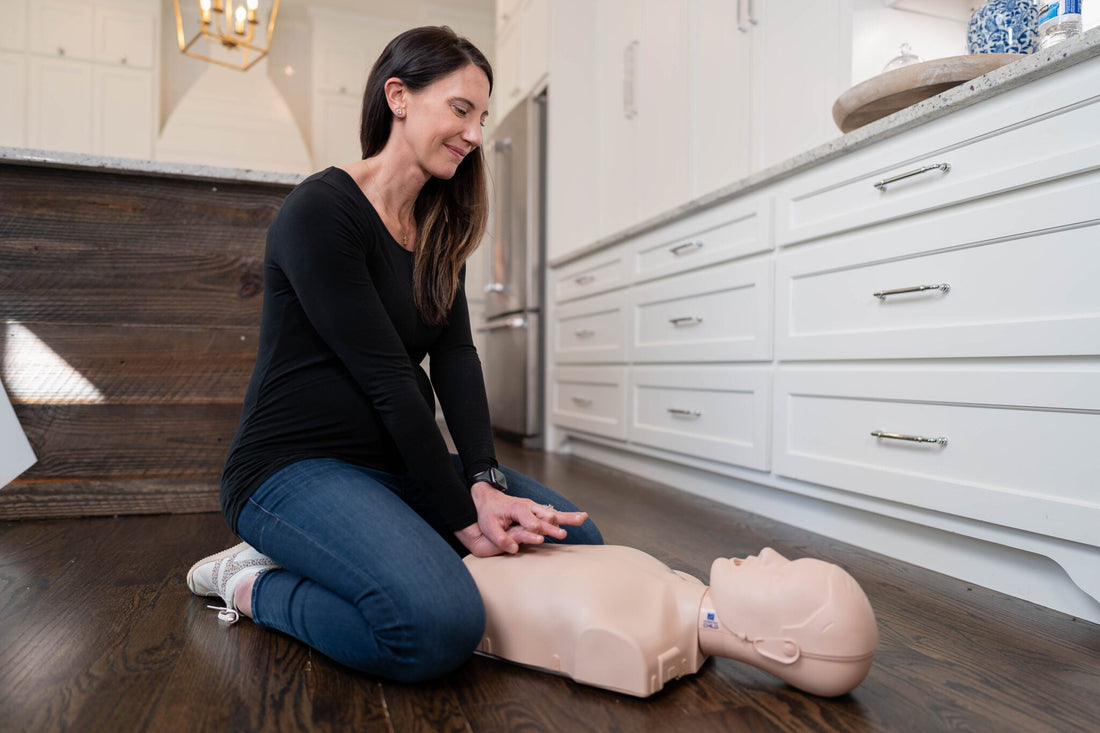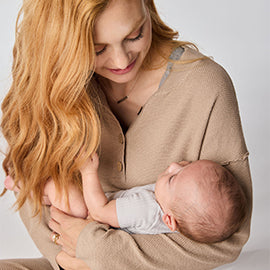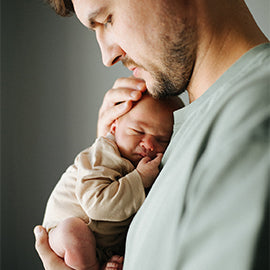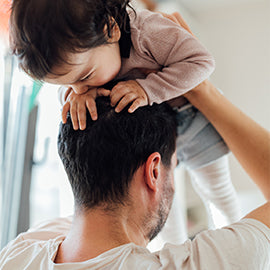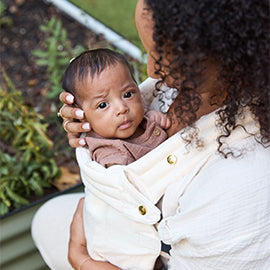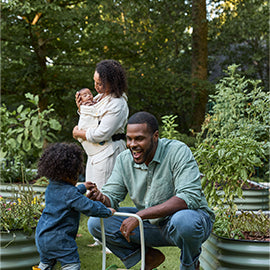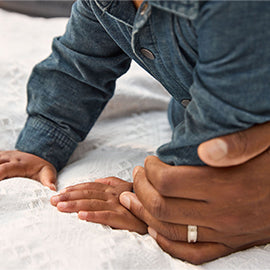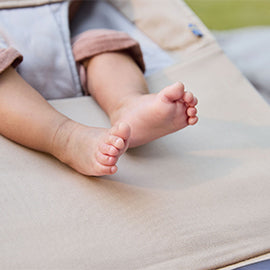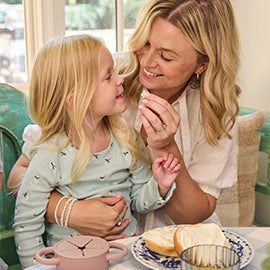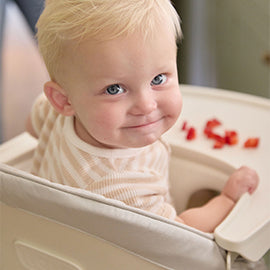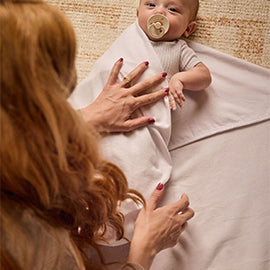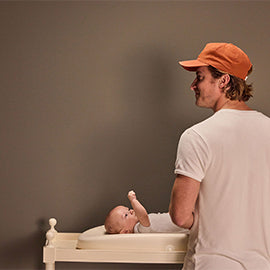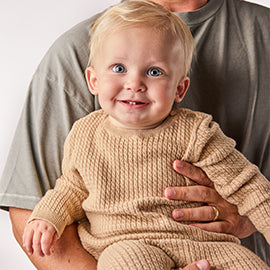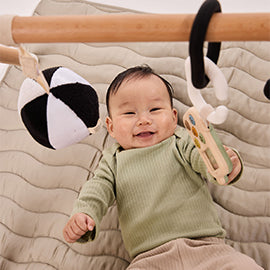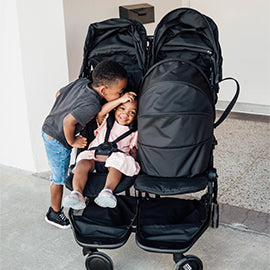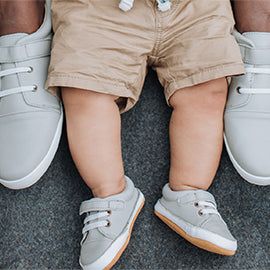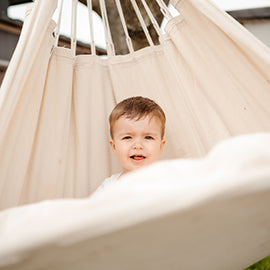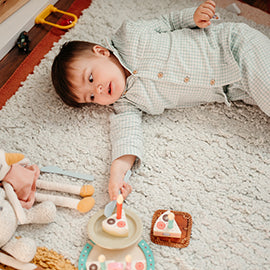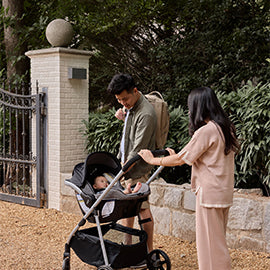Accidents happen when our little ones begin to walk, run, and climb. It is super important for all caregivers to be prepared if an injury happens to their child or someone else’s child.
How can you be prepared with first aid basics to best care for a child in an accident?
- Know what to do for common child injuries.
- Have a well-stocked first-aid kit and medicine cabinet.
- Know Infant + Child CPR and Choking Skills.
How do I know what to do for common injuries and illnesses?
The Moms on Call 6-15 Months Book is a great resource to have on hand (keep it in your medicine cabinet so you know exactly where to find it)!
Take a First Aid Course. Moms on Call offers a First Aid Online Course that includes handouts you can print and keep in your first-aid kit to refer to at any time!
Your pediatrician is also a great resource for minor injuries and illnesses. Their number should be saved in your phone. You should have the pediatrician’s name, address, and phone number on your babysitter sheet for all caregivers. In the event of an emergency, always call 911!
Next, we will cover three common accidents that happen to children.
Be Prepared with First Aid Basics: Falls
Falls are the leading cause of injury among children, especially babies, and toddlers, as they are still learning movement control and balance.
In our experience as nurses, most result in a bump on the forehead. There is little soft tissue on the forehead, so it usually looks like a big “goose egg” when the swelling occurs.
Try to apply ice packs to decrease swelling for up to 20 minutes. Getting a little one to stay still is tricky, even for a few minutes! This is a great time to turn on their favorite show to distract them while trying to keep the ice pack on the bump.
Continue to observe your child after a head injury. Do not give any pain medication. If the pain is severe, call a pediatrician. Early toddlers often bang their heads against the floor to alleviate a headache. Look for that sign in conjunction with other symptoms, such as sensitivity to light, awakening, confusion, difficulty walking or talking, breathing abnormally, nausea, or vomiting more than twice. Seek medical care immediately if your child is showing any of these symptoms.
Be Prepared with First Aid Basics: Poisoning
“Poison centers answer more than 1 million calls yearly about a child under age 5.” Safekids.org Poisoning happens when a child swallows cleaning supplies, a small battery, or medicine that could be found in Mom's or Grandma’s purse.
Always call the poison control center immediately if you think your child has swallowed a poison or other substance, such as medicine, that they should not have had. Do not try to give anything by mouth or try to induce vomiting. Do not delay calling poison control or 911.
Make sure to keep all clean supplies, medicines, alcoholic beverages, and chemicals out of reached and locked!
Be Prepared with First Aid Basics: Drowning
Children ages 1-4 have the highest drowning rates. This doesn’t just happen in the pool but can happen around any water source, including the bathtub. According to Safekids.org, “Drowning is the leading cause of injury-related death *in the home* for children 1-4 years old.” Never leave your child unattended in a bath, even run to another room to get your phone or a towel. Always drain the bathtub immediately when bath time is done.
Give your child(ren) your full and undivided attention while they are in the bathtub and around any source of water (pool, creek, lake, inflatable pool, ocean, bucket of water, etc.). Children can drown in a few inches of water. If you are around natural bodies of water, such as a lake or ocean, always ensure they have a life jacket on – this is important, even if they already know how to swim. Life jackets can also be used in and around the pool. Drowning happens quickly and quietly; there needs to be a designated adult watching the child(ren) around any source of water.
Learn the life-saving skills of CPR! If a child does drown, you need to be able to respond quickly!
Are you ready to become confident in caring for your child or someone else’s child in an emergency? Take the Moms on Call Infant + Child CPR, Choking, and First Aid Online Course! We even include quick reference guides for you to print to have on hand to refer to at any moment! Check out our First Aid Kit List as well!
